Description
Name in North American Boletes: Boletus roxanae
Genus: Aureoboletus
- Genus 2: Boletus
- Genus 3: Xercomus
Species: roxanae
Common Name:
Tells: Grainy cap smooths a bit w/age. Pale cap flesh DNS & can have an unpleasant taste. White pores age yellow, & stain cinnamon. Yellow-orange, lined stem w/orange band on top.
Other Information: Likes oaks, but most typically in oak-pine woods. Go figure. Cap starts anywhere from yellow-brown to rusty red & fades toward dull orange-yellow to orange-brown, & is typically lighter at the edges. Flesh can be white or pale yellow. Stem flesh may be slightly pink.
Science Notes: DNA testing moved this mushroom into the newly erected genus “Aureoboletus” (“Aureo” from the characteristic sunny-yellow pores).
Edibility: It’s said to be edible enough, but not anything special. And why bother if it tastes bad to begin with?
CHEMICAL TESTS:
- NH4OH (Ammonia): No data.
- KOH: Cap flesh turns pale brown.
- FeSO4 (Iron Salts): No data.
Links:
 |
0 |  |
0 |  |
151 |
|

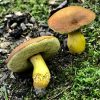
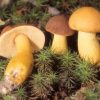
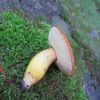
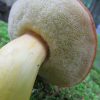
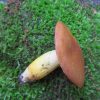
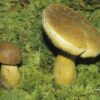
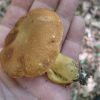

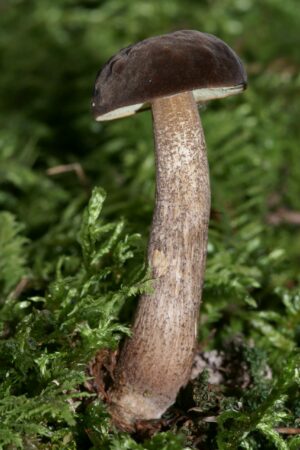
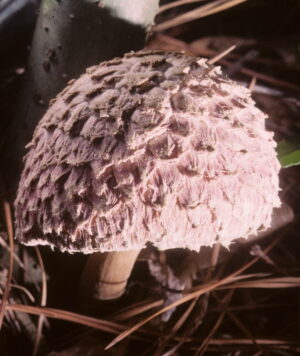
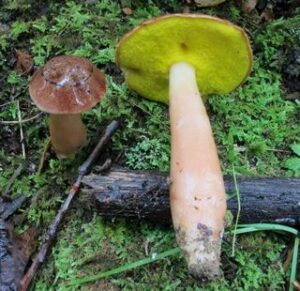
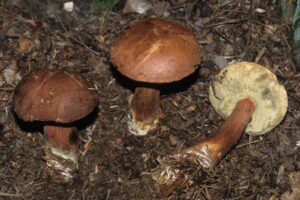
Got something to discuss?